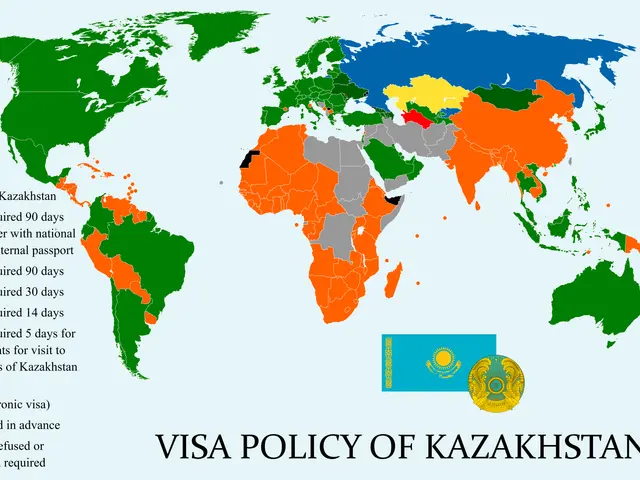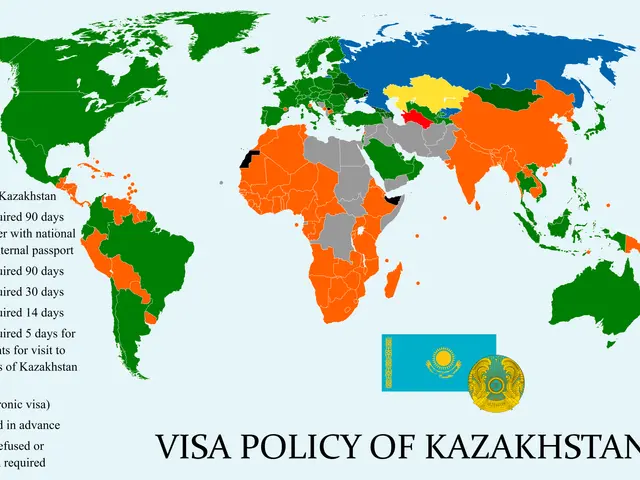Weekly affairs in the German Federal Parliament (Bundestag)
The German government has announced the establishment of a Special Fund for the Bundeswehr, a €100 billion fund aimed at modernizing and strengthening the country's military. This fund, established in response to Russia's invasion of Ukraine in 2022, is a significant step towards Germany's historic military buildup.
This special fund supplements Germany’s regular defense budget, which is undergoing a significant increase. The defense budget is set to rise from €62.4 billion in 2025 to €82.7 billion in 2026, with the total effective defense spending exceeding €108 billion in 2026 when including the special fund.
The fund supports large-scale procurement and modernization programs, with planned acquisitions of tanks, ships, aircraft, and other advanced weapon systems over decades, amounting to over €350 billion in procurement and contract commitments up to 2041. Investments focus heavily on equipment, materiel, ammunition, vehicles, aircraft, digitalization projects, and systemically important infrastructure.
Personnel expansions are also planned, with 10,000 additional military and 2,000 additional civilian posts in 2026, and the creation of 20,000 temporary military posts under new military service legislation. These expansions reflect a comprehensive increase in both manpower and technology to boost military readiness and strength.
The fund breaks previous fiscal constraints by allowing borrowing to finance defense investments, raising discussions about sustainability and long-term debt servicing. €33.2 billion has been budgeted for debt service in 2025 alone.
Germany aims to build the Bundeswehr into the strongest conventional European army and increase defense spending to about 3.5% of GDP by 2029, significantly above NATO’s previous 2% target and meeting new benchmarks set by NATO for 2026 and beyond.
In other news, electricity suppliers will be required to separately indicate the amount by which electricity bills have been reduced due to the lowered EEG surcharge in the next bill. This reduction, along with improvements in mid-jobs and the raising of the earnings limit for mini-jobs, is expected to benefit millions of employees and consumers.
Furthermore, the Federal Anti-Discrimination Agency will be led by an independent Federal Commissioner for Anti-Discrimination, proposed by the Federal Government. An amendment to the General Equal Treatment Act (AGG) will strengthen the independence of the Federal Anti-Discrimination Agency.
The revenue losses of 6.6 billion euros for transmission network operators will be covered by the Energy and Climate Fund (EKF). The upper limit for social security contributions will be raised from 1,300 to 1,600 euros.
The Special Fund does not affect the core budget and ensures parliamentary control. The Bundestag elects this office for five years; the appointment is made by the Federal President.
[1] Bundesministerium der Verteidigung (2022). Sonderfonds Bundeswehr. Retrieved from https://www.bundeswehr.de/nc/de/laender/politik/sonderfonds-bundeswehr,163256
[2] Bundesministerium der Finanzen (2022). Sonderfonds Bundeswehr. Retrieved from https://www.bundesfinanzministerium.de/Content/DE/Downloads/Pressemitteilungen/2022/2022-03-21-sonderfonds-bundeswehr.html
[3] Bundesregierung (2022). Sonderfonds Bundeswehr. Retrieved from https://www.bundesregierung.de/breg-de/themen/verteidigung/sonderfonds-bundeswehr-1803163
[4] Bundesministerium für Arbeit und Soziales (2022). Mindestlohn. Retrieved from https://www.arbeitsagentur.de/themen/mindestlohn.html
[5] NATO (2022). Defence Spending. Retrieved from https://www.nato.int/cps/en/natohq/topics_171269.htm








